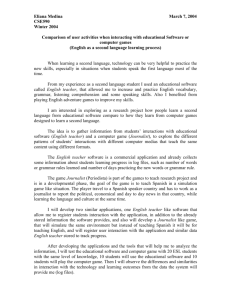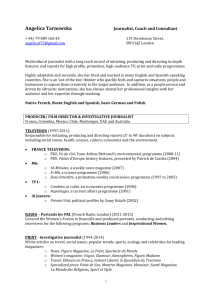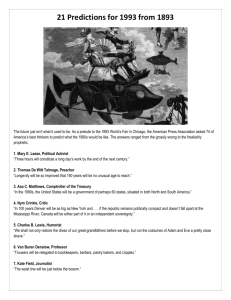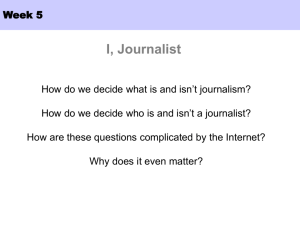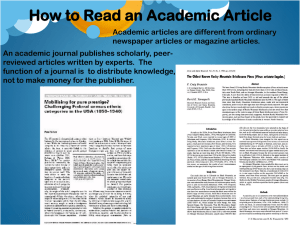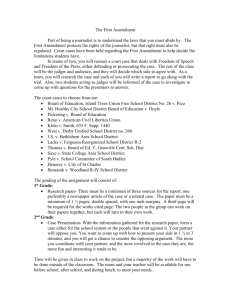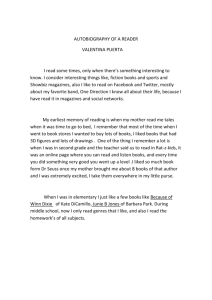Various Journalist Genres
advertisement
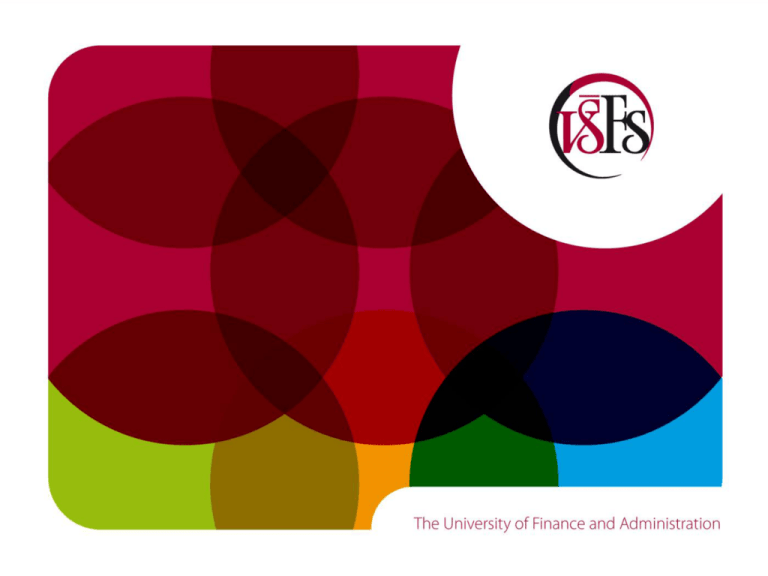
Various Journalist Genres L6 Ing. Jiří Šnajdar 2013 Various Journalist Genres Genres are called in English articles. An article is written, non-fiction essay. These non-fictional prose compositions appear in magazines, newspapers, academic journals, the Internet or any other type of publication. What genres are there? Name the basic features. Articles divide into two main categories: news and features. Straight news stories deal with the timeliness and immediacy of breaking news, while feature articles are news stories that deal with human-interest topics or which offer the opportunity for providing more breadth or depth, context of history or other explanatory background material. news articles A news article is an article published in a print or Internet news medium such as a newspaper, newsletter, news magazine, news-oriented website, or article directory that discusses current or recent news of either general interest (i.e. daily newspapers) or on a specific topic (i.e. political or trade news magazines, club newsletters, or technology news websites). A news article can include accounts of eye witnesses to the happening event. It can contain photographs, accounts, statistics, graphs, recollections, interviews, polls, debates on the topics, etc. Headlines can be used o focus the reader’s attention on a particular (or main) part of the article. The writer can also give facts and detailed information following answers to general questions like who, what, when, where, why (the Five Ws) and how. Quoted references, references to people are made through written accounts of interviews and debates confirming the factuality of the writer’s information and the reliability of his source. The writer uses redirection to ensure that the reader keeps reading the article and to draw her attention to other articles. For example phrases like “Continued on page 3” redirect the reader to a page where the article is continued. Newspaper reporters write in inverted pyramid style, with all the most important information in the first paragraph or two. feature articles Feature articles are nonfiction articles that intend to inform, teach or amuse the reader on a topic. The topic centers around human interests. The basic genres: Column – A short newspaper or magazine piece that deals specifically with a particular field of interest, or broadly with an issue or circumstance of far-reaching scope. They appear with by lines on regular basis (daily, weekly). They may be written exclusively for one newspaper or magazine. Interview This feature story type article includes the text of the conversation between two or more people, normally directed by the interviewer (author). Interviews are often edited for clarity. Personality Profile It is a personal or professional portrait, sometimes both, of a particular individual. Feuilleton Or whether the footnote is specific editorial genre, usually used in the press as a counter part to the main article. Funny processes seemingly insignificant, but interesting topic and showing ordinary things in a new light, the author is very subjective and based on their own experiences. Review A review is an evaluation of a publication, such as a movie (a movie review), video game, musical composition (music review of a composition or recording), book (book review); a piece of hardware like a car, home appliance, or computer; or an event or performance, such as a live music concert, a play, musical theater show or dance show. It can be also very subjective sometimes. The others genres, the typical for some newspaper or magazine: Exposé - These articles use in-depth reporting with heavy research and documentation. It used to expose corruption in business, politics or celebrities. It also called the investigative article. How-to – How-to… articles help people to learn how to do something. They provide step-by-step information for the reader. Travel literature – Travel articles inform and enlighten the reader through facts about a region’s landscape, scenery, people, customs and atmosphere. In what types of media do they appear? Which do you prefer reading? Why? These genres which we have been spoken about, are in all types of media (TV, radio, newspapers, magazines). In newspapers are all types of genres, because recently they have basic news as headline or flash, or article about political events. They give information. But newspapers have their own magazines, where are advicess for weekend what to do, culture tips, interview with celebrities etc. There are film, science, music, garden, house, games, children magazines etc. There are genres which are typical for these magazines. In movie magazines are reviews, in science magazines are articles about new discoveries… But for example intervies is common genre for all types of magazines. In radio are especially headlines in news each hour. As newspapers had magazines, radio has show, where is moderator speaking about movies, music etc. The biggest advantage of television is that they show you pictures. In other media you could read, you could listen. When you are listenting to the radio, you have to use your imagination, but when you watch TV, you can just lie at your couch and you needn’t even think about it. For example review. It is in magazine, news, television and radio. The best type of media for review is TV. Because they could show you piece of movie. They called trailer, because you can make imagination how the movie is. Trailer can be also in the radio, but its only sound. On the other hand in special movie magazines is more space for critic of movie. Author of the article describes his own experiences, plot, actorsentertainment, music etc. Journalism and Its Ethics Ethics is very important. Every journalist should have breeding and instinct. Every journalist go to sensational story which make celebration him. But it is not anything. Journalist must know that some thing can very injure these people about which story is talking. Journalist must know when go to story and when not. But only not journalist ethics, ethics keep in doctors way, jurist way, police way and politician way. In all these ethics has been a long time. Journalist must say to reader true, only true information. Too journalist must be objective and even. His information must be serious and credible. Journalist must write only from his sources. Every journalist should keep these ethical things. Very important is distinction between freedom of speach and protection of privacy. Very hardly is decision in situation, when a victim can be aggrieved, for example some information, facts, photographs which journalist would want to publish. In these moments journalist must consider, what is correct. It very important and very exacting for person psychic. Journalist stay before this decision nearly every day. Every day he must consider, what is ethical and what is not ethical. This is not easy work. Some information from the history: In 1918 is published charta for journalist in France In 1926 is published ethics profession codex In 1954 rising International federation of journalist in Czech Republic in 1998 Syndicate of Czech journalist issued Ethics codex of journalist (true information, high professionalism, propriety and credibility) Genres in academic writing: Brief reports Many newspapers and magazines regularly include short reports of current research that may be of interest to the educated reader. For a brief research report, you will probably include the following stages: Short summary. This summarises the main points of the research. It will include the names of the researchers, where they work and where the main report is published. General background. This puts the research in the wider context by giving brief details of the subject and the state of present research. Purpose. This explains the purpose of the investigation, and explains why it was carried out. Procedure. This explains how the research was carried out. It gives details of who the subjects were, how the data was gathered and any special equipment that was used. General background. This puts the research in the wider context by giving brief details of the subject and the state of present research. Purpose. This explains the purpose of the investigation, and explains why it was carried out. Procedure. This explains how the research was carried out. It gives details of who the subjects were, how the data was gathered and any special equipment that was used. Results. This gives details of any new information that came from an anaysis of the data. What was found? Conclusions. The report concludes by relating the findings to the wider context and explains why the research is relevant today. A brief research report could have the following stages. Title Summary Give the main points of the research, the names of the authors, where they work and where the results were published. Background Describe the present state of knowledge in the area. Purpose Explain the purpose of the investigation. Why was it was carried out? Procedure Explain how the research was carried out. Give details of who the subjects were and how the data was gathered. Results Give details of any new information that came from an anaysis of the data. Conclusion Conclude by explain why the research is relevant in the modern world. This is why the 7 Cs of Communication are helpful. The 7 Cs provide a checklist for making sure that your meetings , e-mails, conference calls, reports, and presentations are well constructed and clear – so your audience gets your message. According to the 7 Cs, communication needs to be: Clear, Concise, Concrete, Correct, Coherent, Complete, Courteous. Clear When writing or speaking to someone, be clear about your goal or message. What is your purpose in communicating with this person? If you're not sure, then your audience won't be sure either. To be clear, try to minimize the number of ideas in each sentence. Make sure that it's easy for your reader to understand your meaning. People shouldn't have to "read between the lines" and make assumptions on their own to understand what you're trying to say. Concise When you're concise in your communication, you stick to the point and keep it brief. Your audience doesn't want to read six sentences when you could communicate your message in three. Are there any adjectives or "filler words" that you can delete? You can often eliminate words like "for instance," "you see," "definitely," "kind of," "literally," "basically," or "I mean.„ Are there any unnecessary sentences? Have you repeated the point several times, in different ways? Concrete When your message is concrete, then your audience has a clear picture of what you're telling them. There are details (but not too many!) and vivid facts, and there's laser like focus. Your message is solid. Correct When your communication is correct, it fits your audience. And correct communication is also error-free communication. Do the technical terms you use fit your audience's level of education or knowledge? Have you checked your writing for grammatical errors? Remember, spell checkers won't catch everything. Are all names and titles spelled correctly? Coherent When your communication is coherent, it's logical. All points are connected and relevant to the main topic, and the tone and flow of the text is consistent. Complete In a complete message, the audience has everything they need to be informed and, if applicable, take action. Does your message include a "call to action", so that your audience clearly knows what you want them to do? Have you included all relevant information – contact names, dates, times, locations, and so on? Courteous Courteous communication is friendly, open, and honest. There are no hidden insults or passive-aggressive tones. You keep your reader's viewpoint in mind, and you're empathetic to their needs. Outline of the selected style of language tools Metaphors - simile, Personification - embodiment, Metonymy - transfer naming, Hyperbole – exaggeration, Irony – sarcasm, Euphemism – understatement, Outline of the selected style of language tools Oxymoron - contradiction with the meaning of the noun, Allegory - visual representation of abstract concepts, Epithet – epitomé (impersonation)
